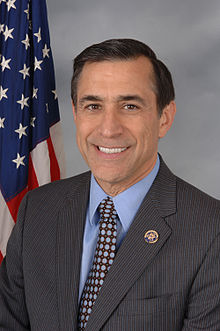The popular H-1B work visa program could potentially be amended to prevent employers and the skilled workers who benefit from using the program from abusing it in the future.
H-1B visas allow foreign workers to fill in skill gaps in the American workforce.
According to a report by CNN, foreigners sought the visa to the tune of three times the annual limit of 85,000 last year.
Now, critics of the program are saying firms are exploiting the visas to hire foreign workers in place of Americans to save some extra money.
The report said that with President-elect Donald Trump taking over the White House later this month, there may be an opening for people against the program to crack down on the excessive use of it.
Among the combatants is Rep. Darrell Issa, R-Calif., who introduced the “Protect and Grow American Jobs Act’ in July last year. The act stated that any company paying H-1B workers less than US$100,000 would have to show they couldn’t hire Americans for the same jobs.
The existing law is similar to what Issa introduced, but the pay scale is around US$60,000. The law was established in 1998 and doesn’t apply to foreign workers with master’s degrees. Issa’s bill would do away with that exemption.
The basis behind Issa’s law is to make the H-1B visa process more challenging and expensive for companies. Companies with more than 50 employees and have H-1B workers making up at least 15 percent of its workforce would come under this program.
The H-1B visas are utilised quite regularly by skilled workers in India seeking opportunities in the U.S. and more specifically Silicon Valley in California where tech industries are a dime a dozen.
Rep. Zoe Lofgren, D-Calif., who represents Silicon Valley, says Issa’s legislation is inadequate and won’t stop outsourcing.
To counteract Issa’s bill, Lofgren has drafted a more comprehensive bill that would award visas by which employers offer the highest salaries.
Under both the current system and Issa’s proposal, visas are awarded by lottery, even after companies go through all the paperwork, the report said.
Lofgren’s bill, which will also propose changes to how permanent visas are awarded, eliminating limits allocated by country, is scheduled to be introduced within weeks, the report noted.
By writing a new bill, Lofgren believes the high demand for H-1B visas will be cleared up, created by the long wait lists in countries such as India.
The government begins accepting applications from April 1.
Immigration lawyers are waiting to see whether changes will take effect before the upcoming H-1B season.




